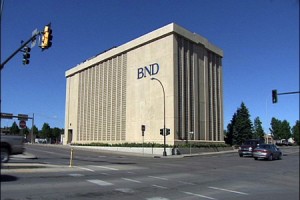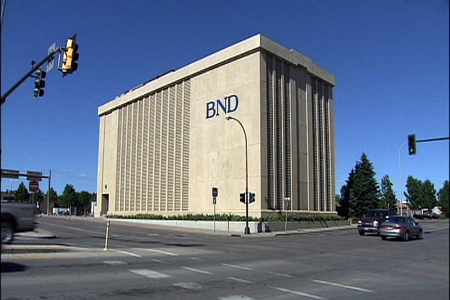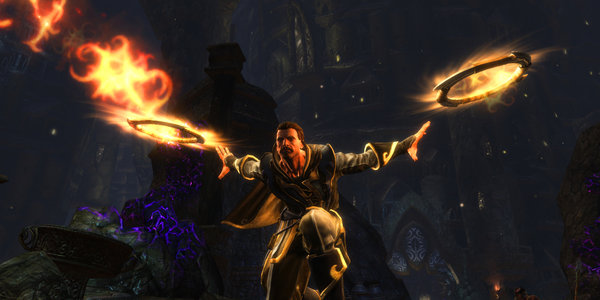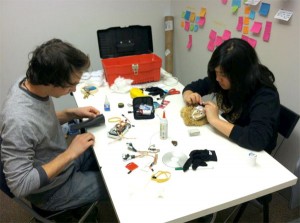A state-owned bank. Essentially, a Bank of Rhode Island. This is the proposal floated by ecoRI News’ Kyle Hence in a January article about how the state sends its revenues out of state, where they go to improve the economies of other regions in the country, and indeed, the world. All this despite the fact that the state claims to be placing them in “local banks.”
The local banks? Citizens Bank, BankRI, Bank of America, Sovereign Bank, Washington Trust, and Webster Bank. The intriguing idea is that by creating a state-owned bank, Rhode Island would amplify its spending power (since banks have a special ability to loan out nine dollars for every dollar placed in their coffers) while creating an institution that could assist with handing out loans where the standard corporate bank is unable or unwilling to enter the market.

The greatest national proponent of the idea is Ellen Brown, a former Los Angeles civil litigation attorney, natural medicine advocate, and author of Web of Debt (her website is available here). Ms. Brown has written vociferously about the issue, advocating for a model based off the only state-owned bank in the United States, the Bank of North Dakota (Puerto Rico also owns its own bank, the Government Development Bank, created by New Dealer Rexford Tugwell). North Dakota has almost entirely avoided the economic recession, and is running a surplus.
The Bank of North Dakota (BND) is an anomaly in the U.S. financial system. Formed by the Nonpartisan League, a socialist-started faction of the Republican Party (yes, you read that right), its goal was to assist farmers in getting loans. Assisted by a state run mill (North Dakota Mill and Elevator, still in existence as the nation’s largest flour mill) as well as a prohibition against corporate ownership of farmland, North Dakotans have functioned with the BND for years. Its former governor and sitting U.S. Senator (Republican John Hoeven) is a former BND president.
BND essentially acts as the state’s coffers, instead of various national or multinational banks. As a result, it is not covered by the Federal Deposit Insurance Corporation (FDIC), because FDIC only insures up to $250,000, and the State of North Dakota deposits far more. This lack of FDIC coverage also means BND is outside of the regulatory burdens of the system. Because it didn’t do any subprime lending, BND was shielded from the subprime collapse. It also avoided credit default swaps and derivatives and all of the other various market instruments that we’ve heard so much about since the collapse.
This works largely because the bank is run by conservative bankers, who, according to their president, Eric Hardmeyer, follow “a Warren Buffett mentality–if we don’t understand it, we’re not going to jump into it.” The bank is also a partner to large banks, working instead to amplify the strength of credit unions.
Ms. Brown’s ideas of taking the North Dakota model have been an appealing idea in Great Recession America, especially as states faced high unemployment and reluctant lenders, problems still found in Rhode Island. Discussion of the idea seems to be largely cyclical, happening around this time each year. Multiple states have had legislation come up about it; and the Democratic candidate for Governor of Michigan made it part of his campaign in 2010. Small business owners and farmers in Oregon have banded together for the idea.
But there’s a hitch. A study for the state of Massachusetts by the Boston Federal Reserve found that the situation of the BND just isn’t replicable in most states, nor does it do what most advocates say it does. North Dakota’s economic situation is largely due to its energy sector (based on oil) and agricultural sector. Traditionally, North Dakota has a lower unemployment rate than the nation at all times. Furthermore, South Dakota does too, and lacks any such bank; South Dakota’s economic situation is comparable to North Dakota’s. Even worse, North Dakota has an extremely volatile economy, since it is largely based on agricultural prices, causing average income to leap across the charts.

But BND never steps in to stabilize the state’s economy (again, it is a conservative institution). Furthermore, while BND is a non-competitor to other banks in North Dakota, this is largely due to the fact that it mostly handles the state accounts and buys loans issues by local credit unions. Since North Dakota has one of the largest proportions of credit unions in its banking industry (a reflection on the state’s rural nature), it is thus a great boon to the state’s economy. But highly urbanized and dense states like Rhode Island have less than 10% of our banks as credit unions. Thus, a Bank of Rhode Island would most likely be a direct competitor to banks in Rhode Island, and possibly cause a banking crisis with its creation as it pulled state deposits out of the other banks.
The issue is largely that the conditions of North Dakota cannot be replicated in Rhode Island. BND President Hardmeyer stresses that the bank is run by bankers, not economic development people. He also is very timid about suggesting for other states, since BND is aimed specifically at issues that North Dakota faces.
Indeed, the creation of a BRI would have to follow along similar lines as the formation of a currently unpopular financial institution, the Federal Reserve. U.S. Senator Nelson Aldrich, a Republican Senator who served Rhode Island from 1881 to 1911, had long been an opponent of a national bank before he toured those of Europe.* Convinced of its importance, he returned to the U.S. and designed what became the Federal Reserve with much input from the nation’s bankers.
A BRI would have to not be in competition with private banks, and wresting the state deposits from private hands would be the most important hurdle to overcome. Any partnership involved in creating it would have to involve bankers, economic priorities and niches where the existing banks aren’t reaching would have to be identified, and an understanding of the goals of such a bank would also need be reached.
The state certainly should step in to do what private business can’t accomplish. But improperly executed, a Bank of Rhode Island would be a disaster and discredit state intervention. As an issue, its importance is in highlighting where our economy isn’t functioning properly, a conversation necessary during these times.
__________________________________________
*Correction: An earlier version of this sentence said that Sen. Aldrich served from 1841-1915, which are in fact the years of his birth and death.











 It was twenty years ago this week that Tim Berners-Lee, while working at CERN, put the world’s first website online. It announced his new creation: the World Wide Web. Last year while urging Internet users to sign Demand Progress’s petition against the Internet Blacklist Bill, Berners-Lee wrote this about the principles that underpin his project:
It was twenty years ago this week that Tim Berners-Lee, while working at CERN, put the world’s first website online. It announced his new creation: the World Wide Web. Last year while urging Internet users to sign Demand Progress’s petition against the Internet Blacklist Bill, Berners-Lee wrote this about the principles that underpin his project: